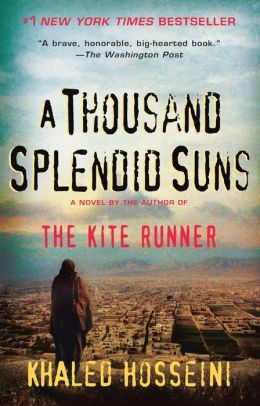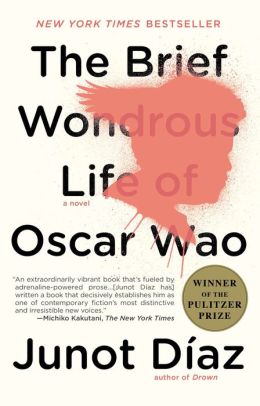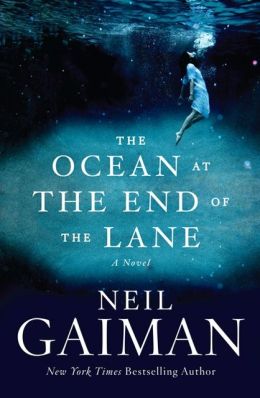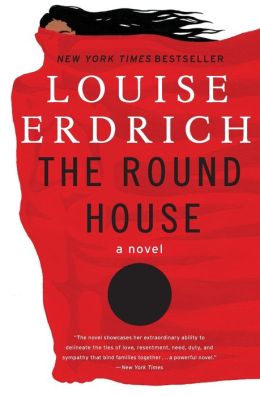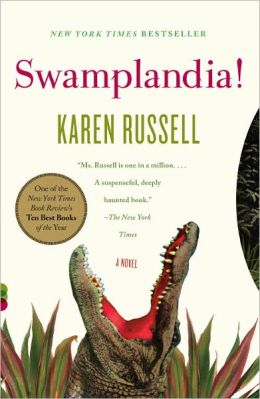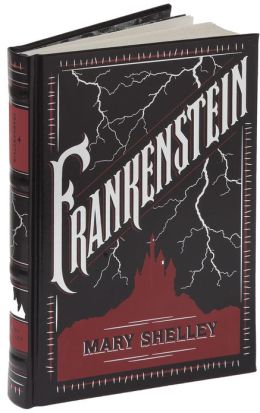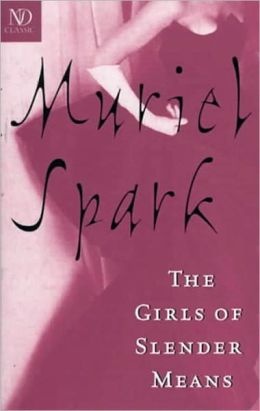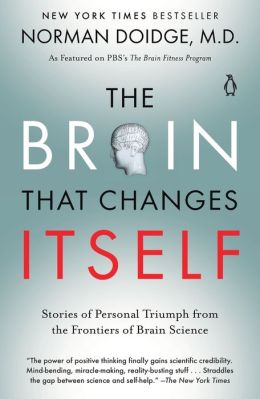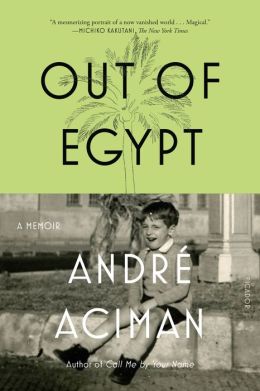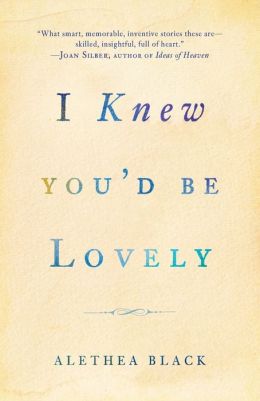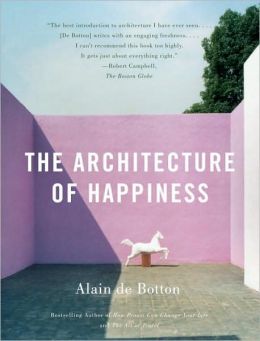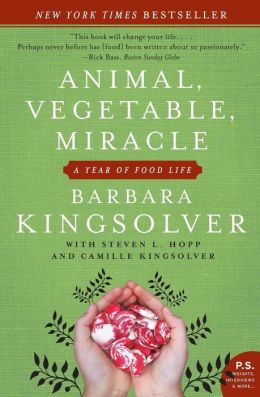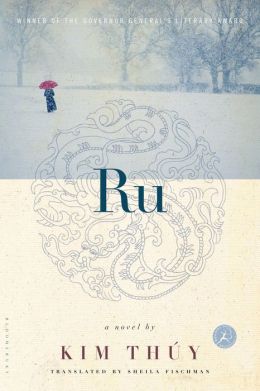February 24, 2014
January 6, 2014
Beautiful Ruins, Jess Walter - January 27, 2014
We'll meet January 27 to discuss Beautiful Ruins by Jess Walter. Location TBD.
Supplemental materials:
Supplemental materials:
- Harper Collins' Reading Group Guide with discussion questions
- LitLovers discussion questions
- NY Times review:
The book takes its title from Louis Menand’s New Yorker description of Richard Burton at 54. It takes its essence from Milan Kundera, in a passage about the elusiveness of the present moment. Yet not for nothing is “Cleopatra” the vortex of the novel: the great Hollywood debacle, the love story as train wreck, the project so crazy it made other, crazier projects look sensible by comparison. And yet it was a romance. Mr. Walter has built his book around “Cleopatra” as a monument to crazy love.
- NPR review
December 1, 2013
Flight Behavior, Barbara Kingsolver - January 6, 2014
We'll meet at Julie's house on Jan. 6 to discuss Flight Behavior by Barbara Kingsolver.
Supplemental materials:
Supplemental materials:
- New York Times review
- LitLovers entry (includes publisher's discussion questions)
- Kingsolver's site
- Guardian interview
- PBS article: Why Fewer Monarchs are Surviving Their Winter Migration to Mexico: http://www.pbs.org/newshour/bb/environment/july-dec13/monarch_12-24.html
November 19, 2013
A Thousand Splendid Suns, Khaled Hosseini - Nov. 25, 2013
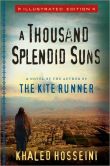 We'll meet at Steph's house on November 25 to discuss A Thousand Splendid Suns.
We'll meet at Steph's house on November 25 to discuss A Thousand Splendid Suns.Supplemental materials:
- Hosseini's site, with link to discussion questions
- NYTimes book review
- LitLovers entry, with discussion questions
November 10, 2013
Our slate for 2013-2014 (and a list of everything pitched)
Here's our lineup and calendar for 2013-2014!
November 25 (at Steph's): A Thousand Splendid Suns, Khaled Hosseini
January 6: Flight Behavior, Barbara Kingsolver
January 27: Beautiful Ruins, Jess Walter
February 24: The Brain That Changes Itself, Norman Doidge
March 24: Let the Great World Spin, Colum McCann
April 28: Angle of Repose, Wallace Stegner (Gayle: we picked it in your honor! Hope you can join us for this one!)
May19: How It All Began, Penelope Lively
June 23: Lowland, Jhumpa Lahiri
July 28: Swamplandia, Karen Russell
August 25: The Ocean at the End of the Lane, Neil Gaiman
September 22: Frankenstein, Mary Shelley
October 27: Book picking night!
Here are all the pitches with votes (first ballot/second ballot)
Scarlet Letter, Nathaniel Hawthorne 10/11 - Julie
This is How You Lose Her, Junot Diaz 14/24 - Kathy
The Brief Wondrous Life of Oscar Wao, Junot Diaz - 5/0 - Karen
Life After Life, Kate Atkinson - 0/0 - Ruth
Lowland, Jhumpa Lahiri 38 - Kerry
Let the Great World Spin, Colum McCann 18/45 - Katherine
Flight Behavior, Barbara Kingsolver 19/30 - Susan
How It All Began, Penelope Lively 30 - Suzanne
Angle of Repose, Wallace Stegner - 35 - Connie - in Gayle's honor
Beautiful Ruins, Jess Walter - 46 - Julie
The Brain That Changes Itself, Norman Doidge - 39 - Steph
The Daylight Gate, Janett Winterson - 15/0 - Kathy
Ocean at the End of the Lane, Neil Gaiman - 15/31 - Karen
Gone Girl, Gillian Flynn - 10/0 - Ruth
Round House, Louise Erdrich - 10/4 - Kerry
A Thousand Splendid Suns, Khaled Hosseini - 42 - Katherine
Ru, Kim Thuy - 19/23 - Suzanne
Architecture of Happiness, Alain de Botton - 0/7 - Suzanne
Swamplandia, Karen Russell - 31 - Steph
The Girls of Slender Means. Muriel Sparks - 10/25 - Steph
November 25 (at Steph's): A Thousand Splendid Suns, Khaled Hosseini
January 6: Flight Behavior, Barbara Kingsolver
January 27: Beautiful Ruins, Jess Walter
February 24: The Brain That Changes Itself, Norman Doidge
March 24: Let the Great World Spin, Colum McCann
April 28: Angle of Repose, Wallace Stegner (Gayle: we picked it in your honor! Hope you can join us for this one!)
May19: How It All Began, Penelope Lively
June 23: Lowland, Jhumpa Lahiri
July 28: Swamplandia, Karen Russell
August 25: The Ocean at the End of the Lane, Neil Gaiman
September 22: Frankenstein, Mary Shelley
October 27: Book picking night!
Here are all the pitches with votes (first ballot/second ballot)
Scarlet Letter, Nathaniel Hawthorne 10/11 - Julie
This is How You Lose Her, Junot Diaz 14/24 - Kathy
The Brief Wondrous Life of Oscar Wao, Junot Diaz - 5/0 - Karen
Life After Life, Kate Atkinson - 0/0 - Ruth
Lowland, Jhumpa Lahiri 38 - Kerry
Let the Great World Spin, Colum McCann 18/45 - Katherine
Flight Behavior, Barbara Kingsolver 19/30 - Susan
How It All Began, Penelope Lively 30 - Suzanne
Angle of Repose, Wallace Stegner - 35 - Connie - in Gayle's honor
Beautiful Ruins, Jess Walter - 46 - Julie
The Brain That Changes Itself, Norman Doidge - 39 - Steph
The Daylight Gate, Janett Winterson - 15/0 - Kathy
Ocean at the End of the Lane, Neil Gaiman - 15/31 - Karen
Gone Girl, Gillian Flynn - 10/0 - Ruth
Round House, Louise Erdrich - 10/4 - Kerry
A Thousand Splendid Suns, Khaled Hosseini - 42 - Katherine
Ru, Kim Thuy - 19/23 - Suzanne
Architecture of Happiness, Alain de Botton - 0/7 - Suzanne
Swamplandia, Karen Russell - 31 - Steph
The Girls of Slender Means. Muriel Sparks - 10/25 - Steph
October 5, 2013
Long Lists
Katherine L.
Let the Great World Spin, Colum McCann
Let the Great World Spin is the critically acclaimed author’s most ambitious novel yet: a dazzlingly rich vision of the pain, loveliness, mystery, and promise of New York City in the 1970s.
A sweeping and radical social novel, Let the Great World Spin captures the spirit of America in a time of transition, extraordinary promise, and, in hindsight, heartbreaking innocence. Hailed as a “fiercely original talent” (San Francisco Chronicle), award-winning novelist McCann has delivered a triumphantly American masterpiece that awakens in us a sense of what the novel can achieve, confront, and even heal.
A Thousand Splendid Suns, Khaled Hosseini
Like its predecessor The Kite Runner, A Thousand Splendid Suns uses that tumultuous backdrop of war-torn Afghanistan to render the heroic plight of two people; in this case, women of different generations married to the same savagely abusive male. Born out of wedlock, Mariam was forced to marry forty-year-old Rasheed when she was only fifteen. Then eighteen years later, her still childless husband angrily takes an even younger wife. Hosseini renders the story of Mariam and her "sister/daughter" Laila with persuasive detail and consummate humanity. Their abject situation leaves them no emotional space for idle philosophizing; their resistance is from the very core of their being. Another Discover selection that made good.)
Katherine U.
The Brief Wondrous Life of Oscar Wao, Junot Diaz
Oscar is a sweet but disastrously overweight ghetto nerd who—from the New Jersey home he shares with his old world mother and rebellious sister—dreams of becoming the Dominican J.R.R. Tolkien and, most of all, finding love. But Oscar may never get what he wants. Blame the fukú—a curse that has haunted Oscar’s family for generations, following them on their epic journey from Santo Domingo to the USA. Encapsulating Dominican-American history, The Brief Wondrous Life of Oscar Wao opens our eyes to an astonishing vision of the contemporary American experience and explores the endless human capacity to persevere—and risk it all—in the name of love.
The Ocean at the End of the Lane, Neil Gaiman
An Amazon Best Book of the Month, June 2013: Neil Gaiman's intent was simple: to write a short story. What he ended up with instead was The Ocean at the of the Lane--his first adult novel since Anansi Boys came out in 2005, and a narrative so thoughtful and thrilling that it's as difficult to stop reading as it was for Gaiman to stop writing. Forty years ago, our narrator, who was then a seven-year-old boy, unwittingly discovered a neighboring family’s supernatural secret. What happens next is an imaginative romp through otherwordly adventure that could only come from Gaiman's magical mind. Childhood innocence is tested and transcended as we see what getting between ancient, mystic forces can cost, as well as what can be gained from the power of true friendship. The result is a captivating tale that is equal parts sweet, sad, and spooky.
Kerry
The Lowland, Jhumpa Lahiri
Born just fifteen months apart, Subhash and Udayan Mitra are inseparable brothers, one often mistaken for the other in the Calcutta neighborhood where they grow up. But they are also opposites, with gravely different futures ahead. It is the 1960s, and Udayan—charismatic and impulsive—finds himself drawn to the Naxalite movement, a rebellion waged to eradicate inequity and poverty; he will give everything, risk all, for what he believes. Subhash, the dutiful son, does not share his brother’s political passion; he leaves home to pursue a life of scientific research in a quiet, coastal corner of America.
But when Subhash learns what happened to his brother in the lowland outside their family’s home, he goes back to India, hoping to pick up the pieces of a shattered family, and to heal the wounds Udayan left behind—including those seared in the heart of his brother’s wife.
Masterly suspenseful, sweeping, piercingly intimate, The Lowland is a work of great beauty and complex emotion; an engrossing family saga and a story steeped in history that spans generations and geographies with seamless authenticity. It is Jhumpa Lahiri at the height of her considerable powers.
The Round House, Louise Erdrich
While his father, a tribal judge, endeavors to wrest justice from a situation that defies his efforts, Joe becomes frustrated with the official investigation and sets out with his trusted friends, Cappy, Zack, and Angus, to get some answers of his own. Their quest takes them first to the Round House, a sacred space and place of worship for the Ojibwe. And this is only the beginning.
Steph
Swamplandia, Karen Russell
Frankenstein, Mary Shelley
At once a Gothic thriller, a passionate romance, and a cautionary tale about the dangers of science, Frankenstein tells the story of committed science student Victor Frankenstein. Obsessed with discovering "the cause of generation and life" and "bestowing animation upon lifeless matter," Frankenstein assembles a human being from stolen body parts but; upon bringing it to life, he recoils in horror at the creature?s hideousness. Tormented by isolation and loneliness, the once-innocent creature turns to evil and unleashes a campaign of murderous revenge against his creator, Frankenstein.
Frankenstein, an instant bestseller and an important ancestor of both the horror and science fiction genres, not only tells a terrifying story, but also raises rofound, disturbing questions about the very nature of life and the place of humankind within the cosmos: What does it mean to be human? What responsibilities do we have to each other? How far can we go in tampering with Nature? In our age, filled with news of organ donation genetic engineering, and bio-terrorism, these questions are more relevant than ever.
The Girls of Slender Means, Muriel Spark
"Long ago in 1945 all the nice people in England were poor, allowing for exceptions," begins The Girls of Slender Means, Dame Muriel Spark's tragic and rapier-witted portrait of a London ladies' hostel just emerging from the shadow of World War II.
Like the May of Teck Club itself—"three times window shattered since 1940 but never directly hit"—its lady inhabitants do their best to act as if the world were back to normal: practicing elocution, and jostling over suitors and a single Schiaparelli gown. The novel's harrowing ending reveals that the girls' giddy literary and amorous peregrinations are hiding some tragically painful war wounds.
Chosen by Anthony Burgess as one of the Best Modern Novels in the Sunday Times of London, The Girls of Slender Means is a taut and eerily perfect novel by an author The New York Times has called "one of this century's finest creators of comic-metaphysical entertainment."
The Brain That Changes Itself, Norman Doidge
An astonishing new science called neuroplasticity is overthrowing the centuries-old notion that the human brain is immutable, and proving that it is, in fact, possible to change your brain. Psychoanalyst, Norman Doidge, M.D., traveled the country to meet both the brilliant scientists championing neuroplasticity, its healing powers, and the people whose lives they’ve transformed—people whose mental limitations, brain damage or brain trauma were seen as unalterable. We see a woman born with half a brain that rewired itself to work as a whole, blind people who learn to see, learning disorders cured, IQs raised, aging brains rejuvenated, stroke patients learning to speak, children with cerebral palsy learning to move with more grace, depression and anxiety disorders successfully treated, and lifelong character traits changed. Using these marvelous stories to probe mysteries of the body, emotion, love, sex, culture, and education, Dr. Doidge has written an immensely moving, inspiring book that will permanently alter the way we look at our brains, human nature, and human potential.
Suzanne
Out of Egypt, Andre Aciman (memoir)
This richly colored memoir chronicles the exploits of a flamboyant Jewish family, from its bold arrival in cosmopolitan Alexandria to its defeated exodus three generations later. In elegant and witty prose, André Aciman introduces us to the marvelous eccentrics who shaped his life—Uncle Vili, the strutting daredevil, soldier, salesman, and spy; the two grandmothers, the Princess and the Saint, who gossip in six languages; Aunt Flora, the German refugee who warns that Jews lose everything "at least twice in their lives." And through it all, we come to know a boy who, even as he longs for a wider world, does not want to be led, forever, out of Egypt.
I Knew You'd Be Lovely, Alethea Black
Alethea Black's deeply moving and wholly original debut features a coterie of memorable characters who have reached emotional crossroads in their lives. Brimming with humor, irony, and insights about the unpredictable nature of life, the unbearable beauty of fate, and the power that one moment, or one decision, can have to transform us, I Knew You'd Be Lovely delivers that rare thing—stories with both an edge and a heart.
Architecture of Happiness, Alain de Botton
The Achitecture of Happiness is a dazzling and generously illustrated journey through the philosophy and psychology of architecture and the indelible connection between our identities and our locations.One of the great but often unmentioned causes of both happiness and misery is the quality of our environment: the kinds of walls, chairs, buildings, and streets that surround us. And yet a concern for architecture is too often described as frivolous, even self-indulgent. Alain de Botton starts from the idea that where we are heavily influences who we can be, and argues that it is architecture's task to stand as an eloquent reminder of our full potential.
Animal, Vegetable, Miracle, Barbara Kingsolver
Author Barbara Kingsolver and her family abandoned the industrial-food pipeline to live a rural life—vowing that, for one year, they’d only buy food raised in their own neighborhood, grow it themselves, or learn to live without it. Part memoir, part journalistic investigation, Animal, Vegetable, Miracle is an enthralling narrative that will open your eyes in a hundred new ways to an old truth: You are what you eat.
How It All Began, Penelope Lively
Through a richly conceived and colorful cast of characters, Penelope Lively explores the powerful role of chance in people's lives and deftly illustrates how our paths can be altered irrevocably by someone we will never even meet. Brought to life in her hallmark graceful prose and full of keen insights into human nature, How It All Began is an engaging, contemporary tale that is sure to strike a chord with her legion of loyal fans as well as new readers. A writer of rare wisdom, elegance, and humor, Lively is a consummate storyteller whose gifts are on full display in this masterful work.
Ru, Kim Thuy
At ten years old, Kim Thúy fled Vietnam on a boat with her family, leaving behind a grand house and the many less tangible riches of their home country: the ponds of lotus blossoms, the songs of soup-vendors. The family arrived in Quebec, where they found clothes at the flea market, and mattresses with actual fleas. Kim learned French and English, and as she grew older, seized what opportunities an immigrant could; she put herself through school picking vegetables and sewing clothes, worked as a lawyer and interpreter, and later as a restaurateur. She was married and a mother when the urge to write struck her, and she found herself scribbling words at every opportunity - pulling out her notebook at stoplights and missing the change to green. The story emerging was one of a Vietnamese émigré on a boat to an unknown future: her own story fictionalized and crafted into a stunning novel.
The novel's title, Ru, has meaning in both Kim's native and adoptive languages: in Vietnamese, ru is a lullaby; in French, a stream. And it provides the perfect name for this slim yet potent novel. With prose that soothes and sings, Ru weaves through time, flows and transports: a river of sensuous memories gathering power. It's a classic immigrant story told in a breathtaking new way.
Let the Great World Spin, Colum McCann
- Winner of the 2009 National Book Award for Fiction
- Winner of the 2011 International IMPAC Dublin Literary Award
Let the Great World Spin is the critically acclaimed author’s most ambitious novel yet: a dazzlingly rich vision of the pain, loveliness, mystery, and promise of New York City in the 1970s.
A sweeping and radical social novel, Let the Great World Spin captures the spirit of America in a time of transition, extraordinary promise, and, in hindsight, heartbreaking innocence. Hailed as a “fiercely original talent” (San Francisco Chronicle), award-winning novelist McCann has delivered a triumphantly American masterpiece that awakens in us a sense of what the novel can achieve, confront, and even heal.
A Thousand Splendid Suns, Khaled Hosseini
Like its predecessor The Kite Runner, A Thousand Splendid Suns uses that tumultuous backdrop of war-torn Afghanistan to render the heroic plight of two people; in this case, women of different generations married to the same savagely abusive male. Born out of wedlock, Mariam was forced to marry forty-year-old Rasheed when she was only fifteen. Then eighteen years later, her still childless husband angrily takes an even younger wife. Hosseini renders the story of Mariam and her "sister/daughter" Laila with persuasive detail and consummate humanity. Their abject situation leaves them no emotional space for idle philosophizing; their resistance is from the very core of their being. Another Discover selection that made good.)
Katherine U.
The Brief Wondrous Life of Oscar Wao, Junot Diaz
Oscar is a sweet but disastrously overweight ghetto nerd who—from the New Jersey home he shares with his old world mother and rebellious sister—dreams of becoming the Dominican J.R.R. Tolkien and, most of all, finding love. But Oscar may never get what he wants. Blame the fukú—a curse that has haunted Oscar’s family for generations, following them on their epic journey from Santo Domingo to the USA. Encapsulating Dominican-American history, The Brief Wondrous Life of Oscar Wao opens our eyes to an astonishing vision of the contemporary American experience and explores the endless human capacity to persevere—and risk it all—in the name of love.
The Ocean at the End of the Lane, Neil Gaiman
An Amazon Best Book of the Month, June 2013: Neil Gaiman's intent was simple: to write a short story. What he ended up with instead was The Ocean at the of the Lane--his first adult novel since Anansi Boys came out in 2005, and a narrative so thoughtful and thrilling that it's as difficult to stop reading as it was for Gaiman to stop writing. Forty years ago, our narrator, who was then a seven-year-old boy, unwittingly discovered a neighboring family’s supernatural secret. What happens next is an imaginative romp through otherwordly adventure that could only come from Gaiman's magical mind. Childhood innocence is tested and transcended as we see what getting between ancient, mystic forces can cost, as well as what can be gained from the power of true friendship. The result is a captivating tale that is equal parts sweet, sad, and spooky.
Kerry
The Lowland, Jhumpa Lahiri
- Shortlisted for the 2013 Man Booker Prize
Born just fifteen months apart, Subhash and Udayan Mitra are inseparable brothers, one often mistaken for the other in the Calcutta neighborhood where they grow up. But they are also opposites, with gravely different futures ahead. It is the 1960s, and Udayan—charismatic and impulsive—finds himself drawn to the Naxalite movement, a rebellion waged to eradicate inequity and poverty; he will give everything, risk all, for what he believes. Subhash, the dutiful son, does not share his brother’s political passion; he leaves home to pursue a life of scientific research in a quiet, coastal corner of America.
But when Subhash learns what happened to his brother in the lowland outside their family’s home, he goes back to India, hoping to pick up the pieces of a shattered family, and to heal the wounds Udayan left behind—including those seared in the heart of his brother’s wife.
Masterly suspenseful, sweeping, piercingly intimate, The Lowland is a work of great beauty and complex emotion; an engrossing family saga and a story steeped in history that spans generations and geographies with seamless authenticity. It is Jhumpa Lahiri at the height of her considerable powers.
The Round House, Louise Erdrich
- National Book Award winner
- Washington Post Best Book of the Year
- New York Times Notable Book
While his father, a tribal judge, endeavors to wrest justice from a situation that defies his efforts, Joe becomes frustrated with the official investigation and sets out with his trusted friends, Cappy, Zack, and Angus, to get some answers of his own. Their quest takes them first to the Round House, a sacred space and place of worship for the Ojibwe. And this is only the beginning.
Steph
Swamplandia, Karen Russell
- New York Times Best Book of the Year
- One of Granta's Best Young American Novelists
- Selected for the New Yorker's 20 Under 40
- Nominated for the Orange Prize
Frankenstein, Mary Shelley
At once a Gothic thriller, a passionate romance, and a cautionary tale about the dangers of science, Frankenstein tells the story of committed science student Victor Frankenstein. Obsessed with discovering "the cause of generation and life" and "bestowing animation upon lifeless matter," Frankenstein assembles a human being from stolen body parts but; upon bringing it to life, he recoils in horror at the creature?s hideousness. Tormented by isolation and loneliness, the once-innocent creature turns to evil and unleashes a campaign of murderous revenge against his creator, Frankenstein.
Frankenstein, an instant bestseller and an important ancestor of both the horror and science fiction genres, not only tells a terrifying story, but also raises rofound, disturbing questions about the very nature of life and the place of humankind within the cosmos: What does it mean to be human? What responsibilities do we have to each other? How far can we go in tampering with Nature? In our age, filled with news of organ donation genetic engineering, and bio-terrorism, these questions are more relevant than ever.
The Girls of Slender Means, Muriel Spark
"Long ago in 1945 all the nice people in England were poor, allowing for exceptions," begins The Girls of Slender Means, Dame Muriel Spark's tragic and rapier-witted portrait of a London ladies' hostel just emerging from the shadow of World War II.
Like the May of Teck Club itself—"three times window shattered since 1940 but never directly hit"—its lady inhabitants do their best to act as if the world were back to normal: practicing elocution, and jostling over suitors and a single Schiaparelli gown. The novel's harrowing ending reveals that the girls' giddy literary and amorous peregrinations are hiding some tragically painful war wounds.
Chosen by Anthony Burgess as one of the Best Modern Novels in the Sunday Times of London, The Girls of Slender Means is a taut and eerily perfect novel by an author The New York Times has called "one of this century's finest creators of comic-metaphysical entertainment."
The Brain That Changes Itself, Norman Doidge
An astonishing new science called neuroplasticity is overthrowing the centuries-old notion that the human brain is immutable, and proving that it is, in fact, possible to change your brain. Psychoanalyst, Norman Doidge, M.D., traveled the country to meet both the brilliant scientists championing neuroplasticity, its healing powers, and the people whose lives they’ve transformed—people whose mental limitations, brain damage or brain trauma were seen as unalterable. We see a woman born with half a brain that rewired itself to work as a whole, blind people who learn to see, learning disorders cured, IQs raised, aging brains rejuvenated, stroke patients learning to speak, children with cerebral palsy learning to move with more grace, depression and anxiety disorders successfully treated, and lifelong character traits changed. Using these marvelous stories to probe mysteries of the body, emotion, love, sex, culture, and education, Dr. Doidge has written an immensely moving, inspiring book that will permanently alter the way we look at our brains, human nature, and human potential.
Suzanne
Out of Egypt, Andre Aciman (memoir)
This richly colored memoir chronicles the exploits of a flamboyant Jewish family, from its bold arrival in cosmopolitan Alexandria to its defeated exodus three generations later. In elegant and witty prose, André Aciman introduces us to the marvelous eccentrics who shaped his life—Uncle Vili, the strutting daredevil, soldier, salesman, and spy; the two grandmothers, the Princess and the Saint, who gossip in six languages; Aunt Flora, the German refugee who warns that Jews lose everything "at least twice in their lives." And through it all, we come to know a boy who, even as he longs for a wider world, does not want to be led, forever, out of Egypt.
I Knew You'd Be Lovely, Alethea Black
Alethea Black's deeply moving and wholly original debut features a coterie of memorable characters who have reached emotional crossroads in their lives. Brimming with humor, irony, and insights about the unpredictable nature of life, the unbearable beauty of fate, and the power that one moment, or one decision, can have to transform us, I Knew You'd Be Lovely delivers that rare thing—stories with both an edge and a heart.
Architecture of Happiness, Alain de Botton
The Achitecture of Happiness is a dazzling and generously illustrated journey through the philosophy and psychology of architecture and the indelible connection between our identities and our locations.One of the great but often unmentioned causes of both happiness and misery is the quality of our environment: the kinds of walls, chairs, buildings, and streets that surround us. And yet a concern for architecture is too often described as frivolous, even self-indulgent. Alain de Botton starts from the idea that where we are heavily influences who we can be, and argues that it is architecture's task to stand as an eloquent reminder of our full potential.
Animal, Vegetable, Miracle, Barbara Kingsolver
Author Barbara Kingsolver and her family abandoned the industrial-food pipeline to live a rural life—vowing that, for one year, they’d only buy food raised in their own neighborhood, grow it themselves, or learn to live without it. Part memoir, part journalistic investigation, Animal, Vegetable, Miracle is an enthralling narrative that will open your eyes in a hundred new ways to an old truth: You are what you eat.
How It All Began, Penelope Lively
Through a richly conceived and colorful cast of characters, Penelope Lively explores the powerful role of chance in people's lives and deftly illustrates how our paths can be altered irrevocably by someone we will never even meet. Brought to life in her hallmark graceful prose and full of keen insights into human nature, How It All Began is an engaging, contemporary tale that is sure to strike a chord with her legion of loyal fans as well as new readers. A writer of rare wisdom, elegance, and humor, Lively is a consummate storyteller whose gifts are on full display in this masterful work.
Ru, Kim Thuy
At ten years old, Kim Thúy fled Vietnam on a boat with her family, leaving behind a grand house and the many less tangible riches of their home country: the ponds of lotus blossoms, the songs of soup-vendors. The family arrived in Quebec, where they found clothes at the flea market, and mattresses with actual fleas. Kim learned French and English, and as she grew older, seized what opportunities an immigrant could; she put herself through school picking vegetables and sewing clothes, worked as a lawyer and interpreter, and later as a restaurateur. She was married and a mother when the urge to write struck her, and she found herself scribbling words at every opportunity - pulling out her notebook at stoplights and missing the change to green. The story emerging was one of a Vietnamese émigré on a boat to an unknown future: her own story fictionalized and crafted into a stunning novel.
The novel's title, Ru, has meaning in both Kim's native and adoptive languages: in Vietnamese, ru is a lullaby; in French, a stream. And it provides the perfect name for this slim yet potent novel. With prose that soothes and sings, Ru weaves through time, flows and transports: a river of sensuous memories gathering power. It's a classic immigrant story told in a breathtaking new way.
August 28, 2013
Pale Fire, Vladimir Nabokov - September 23, 2013
We'll meet September 23 at Julie's house to discuss Pale Fire by Nabokov.
There's so much out there. If there's a topic that interested you, Google it - it's been written about.
A few of the big topics that I look forward to discussing: who is really the narrator? what is Nabokov saying about the relationship between artists and their art? what is Nabokov saying about the relationship between reader and author? what is Nabokov saying about writing and reading (written communication)?
Here are a few of the things I came across:
There's so much out there. If there's a topic that interested you, Google it - it's been written about.
A few of the big topics that I look forward to discussing: who is really the narrator? what is Nabokov saying about the relationship between artists and their art? what is Nabokov saying about the relationship between reader and author? what is Nabokov saying about writing and reading (written communication)?
Here are a few of the things I came across:
- Who's the Narrator of Nabokov's Pale Fire?, William C. Dowling, Rutgers
- A Pale Fire Timeline, Jerry Friedman
- The Novel of the Century: Nabokov's Pale Fire, Ron Rosenblume writing about a book of literary criticism by that title by Brian Boyd
- Synthesizing Artistic Delight - The Lesson of Pale Fire, Brian Walter
- Zembla, A Web Site Devoted to the Life and Works of the Author, Translator, and Lepitologist, Vladimir Nabokov
- New York Times review from 1962
If you find anything interesting, let me know and I'll add it. I'll be adding things throughout the month too, so check back for new links.
August 15, 2013
The Robber Bride - August 26, 2013
We'll meet August 26 to discuss The Robber Bride by Margaret Atwood. Location is TBD.
Supplemental materials:
Supplemental materials:
- Reading Matters review, including a couple questions for discussion: 1) Is Zenia a vampire? and 2) Was she a mean-spirited tart intent on stealing husbands, or an angel in disguise rescuing her female friends from the men that would destroy them?
- Literary Transgressions discussion questions
- Reading Group Guides discussion questions
- Wikipedia entry for The Robber Bridegroom fairy tale. Notes that Atwood's version contains a number of references to fairy tales and folklore.
- Random House Resources collection of resources about this book - has a translation of the Brothers Grimm version of The Robber Bridegroom AND Margaret Atwood's poem, The Robber Bridegroom
- NYTimes review
- The Independent review
- Reconnecting with the Past: Personal Hauntings in Atwoods' The Robber Bride, Donna Bontatibus
- Luminarium web page for The Robber Bride, with links to all kinds of supplemental materials
- Bull Calf review -
- Guardian interview with Atwood, in which she speaks about duality in fiction
- NYTimes interview with Atwood about The Robber Bride
July 15, 2013
The Remains of the Day - July 22, 2013
We'll meet July 22 to discuss The Remains of the Day by Kazuo Ishiguro. Location TBD.
Supplemental materials:
Supplemental materials:
- Litlovers Readers Guide, with discussion questions
- Literary Transgressions discussion questions
- Brown University thing, with questions and discussion
- Lit Reactor column (Tracy Houston) that discusses unreliable narrators
June 4, 2013
Ceremony - June 24, 2013
We'll meet to discuss Ceremony on June 24 at Connie's.
Supplemental materials:
Supplemental materials:
- "The Story is Everything: The Path to Renewal in Leslie Marmon Silko's Ceremony", Tracy Kilgore, electronic dissertation and thesis, 2003
- Sparknotes
May 4, 2013
Cat's Table, June 3, 2013
We'll meet at Steph's house to discuss Cat's Table. Check back for supplemental materials.
Lives of Girls and Women, Shanghai Girls, Falling Upward
I neglected to make posts for the Feb/Mar/April books, so here you go, for posterity:
Feb. 25, 2013: Lives of Girls and Women, Alice Munro at Connie's house
March 25, 2013: Shanghai Girls, Lisa See at Karen's house
April 26, 2013: Falling Upward, Richard Rohr at Katherine's house
Feb. 25, 2013: Lives of Girls and Women, Alice Munro at Connie's house
March 25, 2013: Shanghai Girls, Lisa See at Karen's house
April 26, 2013: Falling Upward, Richard Rohr at Katherine's house
December 24, 2012
The Hunchback of Notre Dame - January 28, 2013
We'll discuss The Hunchback of Notre Dame on January 28. Location TBD. Check back for more supplemental materials.
About the book:
About the book:
- Penguin Teacher's Notes for Hunchback of Notre-Dame
- SparkNotes guide with discussion questions
- Novel Guide's summary and analysis
- Some quotes
- Wikipedia entry for The Hunchback of Notre-Dame
Info about the Cathedral of Notre-Dame, Paris, or the period:
- Maps of Paris from late 1300s through 1700s
- Description of a walking tour of Paris in the Middle Ages, with pictures and some brief history.
- A View on Cities entry, with pictures, map, some info about Notre-Dame
- Ptolemy's world map of 1482
- It's worth it to play around with Google Earth to see Paris street layout, and to see photos of Notre-Dame and the surrounding area.
December 14, 2012
Best Books of 2012
Here's a blog post by "Largehearted Boy" that compiles links to lots of lists of the best books of 2012.
And here's The Daily Circuit for December 31, 2012, wherein Kerry Miller talks with book reviewers from the LA Times and the Washington Post about the best books of 2012.
And here's The Daily Circuit for December 31, 2012, wherein Kerry Miller talks with book reviewers from the LA Times and the Washington Post about the best books of 2012.
December 5, 2012
O Pioneers, Willa Cather - December 14, 2012
We'll meet December 14 to discuss O Pioneers by Willa Cather.
Supplemental materials:
Supplemental materials:
- Text available free via Project Gutenberg
- Willa Cather Archive - O Pioneers! page
- The Walt Whitman poem, Pioneers! O Pioneers!, which must surely have been an inspiration for Cather's title.
- Wikipedia entry for O Pioneers! Mentions this fabulous quote: In a 1921 interview for Bookman, Willa Cather said, "I decided not to 'write' at all, - simply to give myself up to the pleasure of recapturing in memory people and places I'd forgotten."
- Rock band named itself O Pioneers, creating for itself a hipness deficit that is hard to overcome, even with cool black T-shirts with open jack-knife image that you can order here.
Subscribe to:
Posts (Atom)




